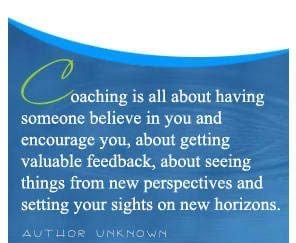Apr 4, 2024 in Life Coaching
Outgrowing People and Moving Forward
Life is a journey of growth and self-discovery, a constant evolution of our thoughts, beliefs, and experiences.
It's your turn now! Let's support each other by clicking "Helpful".
+1

DISCUSS #Relationship
DISCUSS #Parenting
Life is a journey of growth and self-discovery, a constant evolution of our thoughts, beliefs, and experiences. Along this journey, we encounter various individuals who impact us profoundly, shaping our perspectives and influencing our paths.
However, as we evolve, we may outgrow some of these connections. This process can be both liberating and challenging, as it requires us to confront change, embrace growth, and navigate the complexities of human relationships.
“Outgrowing people isn’t a reflection of our lack of loyalty, but rather, a testament to our commitment to personal growth and authenticity.”
Understanding Outgrowing People:
Outgrowing people doesn’t necessarily mean we no longer care about them or value their presence. Instead, it signifies a natural progression of our personal development and interests. Just as a plant outgrows its pot, seeking more space and nourishment to thrive, we, too, outgrow certain relationships and dynamics.
Add to myWE:
This phenomenon can manifest in various ways:
- Misalignment of Values and Priorities: As we grow, our values, beliefs, and priorities may shift. We might find ourselves diverging from those we once resonated with, leading to a disconnect in our relationships.
- Personal Growth: Each individual embarks on a unique journey of self-discovery and personal growth. What, once fulfilled, may no longer serve our evolving needs and aspirations, prompting us to seek new connections that align with our current state.
- Different Paths: Life is dynamic, and people change direction while pursuing their dreams and ambitions. Sometimes, we outgrow relationships simply because we’re headed in different directions, and our paths no longer intersect.
The Challenges of Outgrowing People:
While outgrowing people is a natural part of life, it can also present challenges and emotional complexities:
- Guilt and Obligation: We may feel guilty for outgrowing someone, especially if they’ve been a significant part of our lives. The obligation to maintain the relationship can weigh heavily on our conscience despite recognizing the misalignment.
- Fear of Confrontation: Addressing the shift in dynamics or expressing our need for distance can be daunting. Fear of confrontation or hurting the other person’s feelings may hinder our ability to communicate effectively about our changing needs.
- Loss and Grief: Letting go of relationships, even those that no longer serve us, can evoke feelings of loss and grief. We mourn not only the connection itself but also the shared memories and experiences that shaped our journey together.
Navigating the Transition:
While navigating the transition of outgrowing people can be challenging, it’s essential to approach it with empathy, honesty, and self-awareness:
- Self-Reflection: Before making any decisions, take the time to reflect on your own growth and the reasons behind the shift in dynamics. Understanding your motivations will help you communicate more effectively and clearly navigate the transition.
- Honest Communication: Be honest and transparent about your feelings and intentions with yourself and the other person. Expressing your needs and boundaries respectfully can help facilitate a smoother transition and minimize misunderstandings.
- Set Boundaries: Establishing clear boundaries is crucial, especially if the other person struggles to accept the change. Communicate your boundaries firmly but compassionately, and be consistent in upholding them.
- Focus on Growth: Instead of dwelling on the loss, focus on the growth opportunities. Use this transition to explore new connections, interests, and experiences that resonate with your current state.
Embracing Growth:
Outgrowing people is not a sign of failure or betrayal; it’s a testament to our capacity for growth and transformation. Acknowledging that some relationships have served their purpose and no longer align with our journey is okay.
Embracing this truth allows us to cultivate deeper connections with ourselves and others, fostering a sense of authenticity and fulfilment.
As we evolve and outgrow certain connections, let us do so with gratitude for the lessons learned, compassion for ourselves and others, and an unwavering commitment to personal growth and authenticity. Remember, life is a journey, and every encounter, whether fleeting or enduring, contributes to the richness of our experience.
Outgrowing people is a natural part of our personal growth journey. Yet, it can be accompanied by various challenges and emotional complexities. By approaching the transition with empathy, honesty, and self-awareness, we can navigate it more effectively, fostering a sense of authenticity and fulfilment in our relationships.
Embracing growth requires us to let go of what no longer serves us and embrace the opportunities ahead, cultivating more profound connections with ourselves and others. As we continue to evolve, let us do so with grace, gratitude, and a steadfast commitment to our growth and well-being.
Here, you have four journal prompts that can help you dig deeper into sometimes the guilt of Outgrowing someone who meant a lot to you:
- Reflect on moments in your life where you’ve experienced significant personal growth. How have these moments shaped your values, beliefs, and priorities? How does this growth align or differ from the dynamics of the relationships you feel guilty about outgrowing?
- Consider the concept of self-compassion in the context of outgrowing people. How can you extend the same kindness and understanding to yourself that you would to a friend in a similar situation? How might reframing your perspective on guilt as a natural part of growth and change alleviate some of the emotional burden?
- Imagine a future where you’ve fully embraced your growth and authenticity without the weight of guilt from outgrowing certain relationships. What does this version of yourself look like? What steps can you take today to move closer to that vision and nurture relationships that align with your current values and aspirations?
- Explore the notion of boundaries and self-care in the context of outgrowing people. How can setting healthy boundaries help protect your well-being and honour your growth journey? What practical strategies can you implement to communicate your boundaries respectfully while navigating the complexities of changing relationships?
Receiving a message from a childhood friend after several years of no contact was surprising and nostalgic. As I read through her words, reminiscing about our shared memories and experiences, I couldn’t help but feel a sense of disconnect. While we had been following each other on social media, observing snippets of each other’s lives from a distance, it became evident that our paths had diverged significantly over the years.
Seeing her speak about our friendship as if it were still present stirred a complex mix of emotions within me. On the one hand, I cherished the fond memories we shared in the past, but on the other, I couldn’t ignore the profound changes I had undergone since then. As I scrolled through her social media feed, witnessing her life unfold in snapshots, I realized how much we had grown apart.
Despite feeling guilty for not being able to correspond to her expectations and portray the same level of closeness she seemed to perceive, I recognized the importance of acknowledging the evolution of our individual journeys. This experience served as a reminder of the fluidity of relationships and the need to embrace growth, even if it means accepting that some connections may no longer align with who we’ve become.
Navigating the complexities of reconnecting with old friends and acknowledging our changes can be challenging and illuminating. As we embrace our personal growth journeys, we must honour the evolution of our relationships and the paths we’ve chosen. If you resonated with this experience and seek further support to flip those limiting beliefs on your head. In that case, I invite you to subscribe to my newsletter, Flip It.
Each week, I share insights, tools, and personal anecdotes to empower you to challenge and transcend the beliefs holding you back. Together, let’s embark on a journey of self-discovery and transformation.









 Thank you for your help!
Thank you for your help!